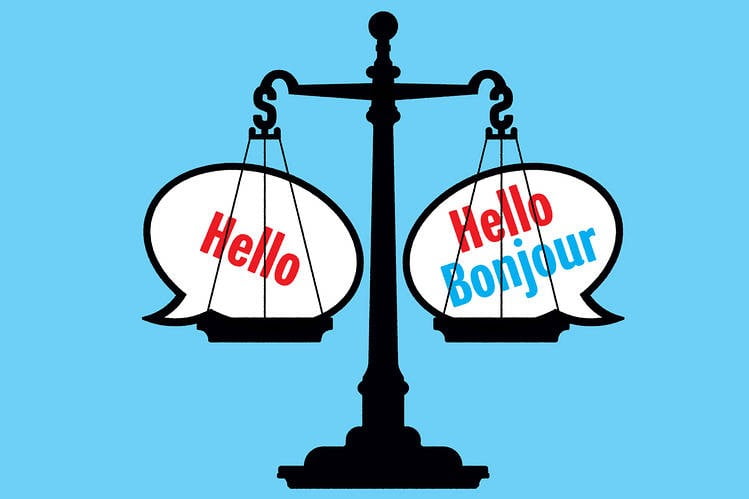Does Bilingualism Make You Smarter?
New research suggests that speaking a second language doesn’t affect overall intelligence, upending the conventional wisdom
By Susan Pinker
https://www.wsj.com/articles/does-bilingualism-make-you-smarter-11590080303
May 21, 2020 12:58 pm ET
Perfect fluency in a second language can make someone seem so worldly and intelligent. But does knowing more than one language really make a person smarter?
The answer is a matter of debate, and the pendulum has swung back and forth. In the first half of the 20th century, hearing two languages at the same time was considered to be a bewildering experience for small children. In fact, many experts thought that speech delays and cultural confusion would be inevitable; bilingual education would thus create social and cognitive Frankensteins, as two psycholinguists put it.
But by the time I was a psychology student in the late 1970s, an about-face was under way. Early exposure to two languages was considered not a handicap but a cognitive advantage. My professors at McGill University, Wallace Lambert and Fred Genesee, published reams of studies showing that truly bilingual children did better than monolingual children on intelligence tests, were more able to inhibit unwanted thoughts and actions, and were more sophisticated abstract thinkers.
Now the consensus is changing again. A vast online study published last month in the journal Psychological Science suggests that bilingualism can be handy but doesn’t make you a whit more intelligent.
“If you ask people on the street, they will say that people who speak two or more languages are smarter,” said Adrian Owen, a neuroscientist at the University of Western Ontario and a senior author of the study. “I’m interested in challenging intuitive ideas. It’s fun to take on a bit of folk psychology.”
Emily Nichols, the lead author and a postdoctoral fellow at the University of Western Ontario, told me that the study enlisted 11,000 people to complete 12 online cognitive tests. Participants included “people who hadn’t finished high school and others with professional degrees.” The researchers then selected 372 pairs comprising one bilingual and one monolingual subject, matching people who were equivalent in age, education, income and gender. Satisfied that they had controlled for these confounding factors, the researchers compared the performance of the pair in online tests of their intelligence.
The study found almost no cognitive differences between people who speak just one language and those who said they speak at least two. Bilinguals had a slight leg up on Digit Span, a task that requires a person to remember increasingly long strings of numbers by heart. Otherwise, the performance of the two groups was a wash.
That “no difference” finding might be partly explained by the fact that the study “treated all bilinguals as a single group,” said Prof. Genesee. In a 2015 study, he and his colleagues looked at neural differences between children who learned two languages simultaneously in infancy and those who learned a second language later. The very early learners, Prof. Genesee said, “engaged neural areas related to language but also areas of executive control,” such as planning and problem solving.
The degree of mastery of a second language also matters, said Richard Haier, author of “The Neuroscience of Intelligence” and a professor emeritus in pediatrics at the University of California, Irvine. “Proficiency can range from barely adequate to excellent; lumping everyone into the same group obscures effects.”
Absence of evidence isn’t evidence of absence, as the aphorism goes. We don’t know all the details about this new study’s participants, so we can’t yet close the book on whether their bilingualism boosts their smarts. But there are clearly other benefits, said Prof. Owen: “You can speak to more people, qualify for more jobs and fall in love with more people.” And for most of us, that’s enough.


